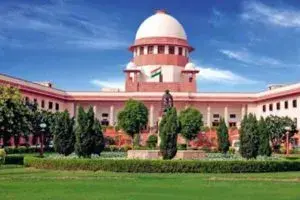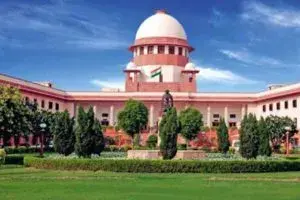Supreme Court:Offences pertaining to weights and measures to be covered under Legal Metrology Act and not IPC
 The Supreme Court in its recent judgement dated 04 September, 2019, in the matter of State of U.P. v. Aman Mittal, held that Section 3 of Legal Metrology Act, 2009 (Act),
The Supreme Court in its recent judgement dated 04 September, 2019, in the matter of State of U.P. v. Aman Mittal, held that Section 3 of Legal Metrology Act, 2009 (Act),
Advertising Game on Social Media? Do’s and Don’ts
 The gaming sector has been gaining rapid popularity in this cyber age. Video games and games on hand held devices are emerging as a source of playing games like never before.
The gaming sector has been gaining rapid popularity in this cyber age. Video games and games on hand held devices are emerging as a source of playing games like never before.
India: The Legal Metrology Laws
 The Legal Metrology Act, 2009 (hereinafter referred to as the “Act”) in India, deals with the units and methods of weighment and measurement in relation to the mandatory technical and legal compliances in order to ensure public guarantee from the angle of security and accuracy of the weighments and measurements.
The Legal Metrology Act, 2009 (hereinafter referred to as the “Act”) in India, deals with the units and methods of weighment and measurement in relation to the mandatory technical and legal compliances in order to ensure public guarantee from the angle of security and accuracy of the weighments and measurements.
India: Cabinet Clears the Data Protection Bill
 Indian Daily, The Economic Times has reported that the Union Cabinet has cleared the Personal Data Protection Bill, 2018 (hereinafter referred to as ‘The Bill’). The Bill primarily focuses on providing a legal framework to protect the data shared by individuals on social media and other online platforms.
Indian Daily, The Economic Times has reported that the Union Cabinet has cleared the Personal Data Protection Bill, 2018 (hereinafter referred to as ‘The Bill’). The Bill primarily focuses on providing a legal framework to protect the data shared by individuals on social media and other online platforms.
Supreme Court: Offences pertaining to weights and measures to be covered under Legal Metrology Act and not IPC

By Rupin Chopra and Priyanka Batra
The Supreme Court in its recent judgement dated 04 September, 2019, in the matter of State of U.P. v. Aman Mittal[1], held that Section 3 of Legal Metrology Act, 2009 (Act), overrides the provisions related to weights and measures covered under Chapter XIII of Indian Penal Code, 1860 (IPC). Section 3 of the Act states that provisions of the Act will override the provisions of any other law. The Act regulates the trade and commerce of weights, measures and goods sold or distributed by weight, measure or number.
Brief Facts –
- A petroleum retail outlet was accused of being involved in malpractice of short delivery by 200-220ml on each sale of 5 liters.
- Upon investigation, the police found a chip fixed inside the dispensing units and inconsistency in the stock records maintained by the outlet.
- Pursuant to the above, the retail outlet (respondent) was booked under several offences of IPC including offences related to using and making of false weights and measures, fraud, criminal intent and criminal conspiracy.
- In its response, two applications were filed by the respondents, stating grounds of lack of material for making out a case based on the offences stated.
- Upon rejection of both the applications by the lower court, a petition was filed in the High Court by the respondent.
- The High Court subsequently passed an order setting out several directions including changes in the investigation process. High Court also held that offences under Section 265 of IPC, i.e. fraudulent use of false weights/measures and section 267 of IPC, i.e. making or selling false weights/measures, are to be quashed.
Contention by the Parties –
- The counsel for the State argued that, though Section 3 of the Act states that provisions of this section will override other provisions of law, does not expressly exclude IPC. They placed reliance on several cases where prosecution under IPC was maintainable along with other Acts.
- The counsel for the accused contended that the Act is a complete code and provides for offences related to standards of weights and measures. They further contended that since the Act is a special statute having an overriding effect, the accused cannot be charged for offences under IPC.
Observations by the Supreme Court –
Relying partly on the observations made the High Court, the Supreme Court observed that –
- Section 3 of the Act completely overrides the provisions of Chapter XIII of IPC in respect of the offences and penalties imposable for violations of the provisions of the Act.
- If the offence is covered under the provisions of the Act, an accused cannot be charged for the same offence under Chapter XIII of IPC.
- The Hon’ble Supreme Court set aside the entire order of the High Court, except the portion relating to Section 265 and Section 267 of IPC.
- The Apex Court also held that reading of Section 51 of the Act makes it clear that the provisions of IPC insofar as they relate to offences with regard to weight or measure, shall not apply to any offence which is punishable under the Act.
- However, offences like fraud, criminal intention and criminal conspiracy are not covered under the Act, therefore, such offences shall be prosecuted under IPC as their trial of is not inconsistent with the Act.
Conclusion –
The Act covers provisions related to weights and measures, whereas, IPC is a code that extensively defines several offences and their sentences accordingly. There can be an overlap only when two provisions are covenant with the same offence, however, in the above case the overlap was only between Section 3 of the Act and Chapter XIII of IPC. Therefore, the Hon’ble Supreme Court has rightly given preference to Section 3 of the Act over Chapter XIII. Additionally, the Hon’ble Supreme Court has also pointed out that Section 3 of the Act does not deal with offences such as fraud, criminal intent and criminal conspiracy, accordingly, only IPC will be resorted to for prosecution of all other offences.
[1] Cr. Appeal no. 1330-1331 of 2019
Related Posts
Advertising Game on Social Media? Do’s and Don’ts

By Rupin Chopra and Reetika Wadhwa
The gaming sector has been gaining rapid popularity in this cyber age. Video games and games on hand held devices are emerging as a source of playing games like never before. This has resulted in expansion of the horizons of gaming industry, whereby start-ups and budding entrepreneurs are developing new games to attract gamers around the world.
Role of advertisements
There is hardly any industry which has been left untouched by the impact of Advertisements. Advertisement is considered as one of the most trusted tool or form of communication for informing consumers and public in general about different types of products and services being offered. In the modern era, internet and social media platforms have emerged as a new tool for advertisement of one’s products or services in order to maximize the revenue generation potential. Similarly, the gaming sector has also been using various social media platforms as a medium of promotion.
Requirements of social media platforms for advertising
The social media caters users from varied backgrounds which use their services to showcase the quality of the products or services for sale. Before such advertisements are broadcasted it is essential that the same are acceptable as per the provisions of the applicable law.
Law in India
The advertisements in India are regulated by Government as well as authorities such as Advertising Standards Council of India (hereinafter referred to as “ASCI”) thereby preventing any prohibited content from being displayed in any advertisement.
- The Code for Self-Regulation formulated by ASCI requires the advertisements to adhere to fair and just legal practices and ensure compliance to norms, including but not limited to, being based on honest representations, not being be offensive to public, not encourage any harmful/ hazardous substances, must encourage fair competition, etc.
- Specific to the gaming industry, online skill games with stakes are often confused with gambling activities operation of which is not legal in India. The Information Technology (Intermediaries Guidelines) Rules, 2011 read with Section 79(2) the Information Technology Act, 2000 requires ‘intermediaries’ like internet service providers, network service providers, search engines, telecom operators etc. not to host or transmit any content which inter alia relates to or encourages gambling (Rules 3(2)(b), Rule 3(4)). Therefore, it is of extreme importance to clarify that the online games being offered for real time money do not fall within the purview of gambling.
- Gaming falls within the exclusive jurisdiction of the respective State law. Many States in India do not allow the offering of game of skills with stakes such as the States of Assam, Odisha, Telangana, etc. Therefore, it is essential that neither the skill games for money (including the online games) are offered in the States prohibiting them nor are the advertisements indicating their availability to the users resident thereof, be made.
It cannot be denied that owing to wide accessibility and internet penetration, social media platforms serve as a better and more effective way of engaging users and creating a larger customer base for the gaming business. As playing games on the online mode are preferred these days, opting for advertisement strategy on social media platform can be beneficial to business houses operating in the gaming industry, provided appropriate and permissible advertisements are broadcasted.
India: The Legal Metrology Laws

By Rupin Chopra and Priyanka Batra
The Legal Metrology Act, 2009 (hereinafter referred to as the “Act”) in India, deals with the units and methods of weighment and measurement in relation to the mandatory technical and legal compliances in order to ensure public guarantee from the angle of security and accuracy of the weighments and measurements.[1]
The Act was introduced to replace the Standard of Weights and Measures Act, 1976 and the Standards of Weights and Measures (Enforcement) Act, 1985. The provisions of the Act came into force on April 1, 2011.
The aim of the Act is to set and enforce the standards of weight and measures, to regulate trade and commerce in weights, measures and other goods sold or distributed by weight, measure or number and to regulate other connected matters.
The Legal metrology (Packaged Commodities) Rules, 2011 (hereinafter referred to as the “Rules”) pertain to goods that are packaged and provide the manner in which declarations are to be made and what declarations a packaged commodity meant for to be for sale must contain.
- Major Stakeholders under the Legal Metrology Act, 2009
The major stakeholders under the Legal metrology Act are:
- Packers – A packer is defined under Regulatoin 2(g) of the Rules, is defined as a person / Firm, who which pre-packs any commodity in any bottle, tin, wrapper or otherwise, in units suitable for sale whether wholesale or retail.
- Manufacturers – Under Section 2(i) of the Act, “manufacturer” in relation to any weight or measure, means a person who— (i) manufactures weight or measure, (ii) manufactures one or more parts, and acquires other parts, of such weight or measure and, after assembling those parts, claims the end product to be a weight or measure manufactured by himself or itself, as the case may be, (iii) does not manufacture any part of such weight or measure but assembles parts thereof manufactured by others and claims the end product to be a weight or measure manufactured by himself or itself, as the case may be, (iv) puts, or causes to be put, his own mark on any complete weight or measure made or manufactured by any other person and claims such product to be a weight or measure made or manufactured by himself or itself, as the case may be;
- Dealer – Under Section 2(b) of the Act, “dealer”, in relation to any weight or measure, means a person who, carries on, directly or otherwise, the business of buying, selling, supplying or distributing any such weight or measure, whether for cash or for deferred payment or for commission, remuneration or other valuable consideration, and includes a commission agent, an importer, a manufacturer, who sells, supplies, distributes or otherwise delivers any weight or measure manufactured by him to any person other than a dealer;
- Importer – The individual, firm or legal entity that brings goods, or causes goods to be brought from a foreign country into a customs territory.
- Repairer – Under Section 2(p) of the Act, “repairer” means a person who repairs a weight or measure and includes a person who adjusts, cleans, lubricates or paints any weight or measure or renders any other service to such weight or measure to ensure that such weight or measure conforms to the standards established by or under this Act;
- Mandatory Registration
Every manufacturer, packer or importer of commodities is required to obtain a registration by filing an application with the Director or the Controller along with submission of its particulars, including but not limited to name, complete address of the premises, name of the commodity, etc. along with the payment of the requisite fees.( Regulation 27 of the Rules)
- Mandatory Declarations need to be made under the provisions of the Act
The Rules mandate for the making of declarations on every package intended to be commercialized in the Indian market (Regulation 6 of the Rules), namely:
- name and address of the manufacturer, packer, importer
- common or generic names of the commodity
- net quantity, in terms of the standard unit of weight or measure, of the commodity
- month and year in which the commodity is manufactured or pre-packed or imported
- retail sale price of the package
- sizes/ dimensions of the commodity wherever relevant
- Penalties under the Act
Offences and Penalties under the Act are specified in Chapter V:
- Section 27 of the Act provides penalty for manufacture or sale of non-standard weight or measure that shall be punishable with a fine which may be extended to twenty thousand rupees and for the second or subsequent offence with imprisonment for a term which may extend to three year or with fine or with both.
- Section 36(1) of the Act provides penalty for manufacturing, packaging, selling, distributing, importing etc., of non-standard packages that shall be punished with fine which may extend to twenty-five thousand rupees, for the second offence, with fine which may extend to fifty thousand rupees and for the subsequent offence, with fine which shall not be less than fifty thousand rupees but which may extend to one lakh rupees or with imprisonment for a term which may extend to one year or with both.
- Section 36(2) of the Act provides punishment for manufacturing or packing or importing any pre-packaged commodity with error in net quantity as may be prescribed. The punishment may be a fine of not less than ten thousand rupees but which may extend to one lakh rupees or with imprisonment for a term which may extend to one year or with both.
- Section 38 of the Act provides penalty for non-registration by importer of weight or measure. The offence is punishable with fine which may extend to twenty five thousand rupees and for the second subsequent offence, with imprisonment for a tem which may be extended to six months, or with fine, or with both.
- Regulation 32 of the Rules imposes penalty on the manufacturer, packer or importer of the commodities for non-registration under the provisions of the Rules or contravention of any other Rules
- Compounding of Offences
Section 48 of the Act provides that some offenses may be compounded either before or after the institution of a prosecution on payment of a prescribed sum. However, no offence can be compounded if the same offence or a similar offence has been committed earlier by the person within three years of date of first offence which was compounded.
- Offences by Companies
Companies must nominate a person who will be held responsible for the conduct of the company and communicate the same to the Director of Legal Metrology or the concerned controller. When no person is nominated then the person in charge or responsible for the operations of the company are held responsible. The company may be directed by the Court to publish its name along with the offence committed in the newspaper at their own cost.
- Appeal
Appeals can be filed to the next higher authority against all decisions or orders of an officer of legal Metrology within 60 days from the day of the passing of the order or decision.
[1] Section 2(g) of Legal Metrology Act, 2009.
India: Cabinet Clears the Data Protection Bill

By Rupin Chopra and Reetika Wadhwa
Indian Daily, The Economic Times has reported that the Union Cabinet[1] has cleared the Personal Data Protection Bill, 2018 (hereinafter referred to as ‘The Bill’). The Bill primarily focuses on providing a legal framework to protect the data shared by individuals on social media and other online platforms. The Bill comes in line with the European Union’s General Data Protection Regulation (GDPR), a regulation for the European Union countries to protect their data and privacy. The Bill when enacted will be a first of its kind as at present there is no law solely addressing the issue of protection of personal data and prevention of its misuse.
The Bill is prepared and modelled by an expert group headed by former Supreme Court Judge, Justice BN Srikrishna. With India being a huge internet market comprising of nearly 450 million internet users, introduction of this Bill would set a new benchmark for privacy laws in India. The Bill aims to keep a check on unregulated information shared on the internet and would help in identifying fake user accounts.
Data Classification
This Bill classifies the data into three broad categories – critical, sensitive and general.
- Critical: The data classifies under the ‘critical’ category will be defined by the government from time to time. The ‘critical’ data has to be stored and processed only in India.
- Sensitive: The data under the ‘sensitive’ category will include sectors like financial, health, sexual orientation, biometrics, transgender status, religious or political beliefs and affiliation. They can be stored only in India and explicit consent would have to be taken for processing such data outside India.
- General: Any data not falling within ‘sensitive’ and ‘critical’ category would be classified as ‘general’ and can be stored and process without any restriction. The government through this way has tried to introduce the concept of consent in data sharing process.
Penalties
The Bill proposes that unauthorized sharing of data would attract a fine of INR 150,000,000 or 4% of the company’s global turnover. Data breach or inaction would also attract a fine of INR 50,000,000 or 2% of the company’s global turnover.
Verification process
The Bill further proposes that social media platforms should introduce verification process for all the users to authenticate their identification. Those who do not opt for the same will be flagged to differentiate them from verified users. Though the Bill does not clarify upon any method to be followed for such verification and the companies shall have the liberty to devise a method on their own to comply with the process.
The present development indicates that the much awaited Data Protection Law may soon see light of the day. With technological advancement and data integration, the protection of confidential and valuable data is a primary and critical concern for any entity in this cyberage. However, the procedural compliances as enumerated in the Bill by the companies might be time consuming and would involve higher costs.

